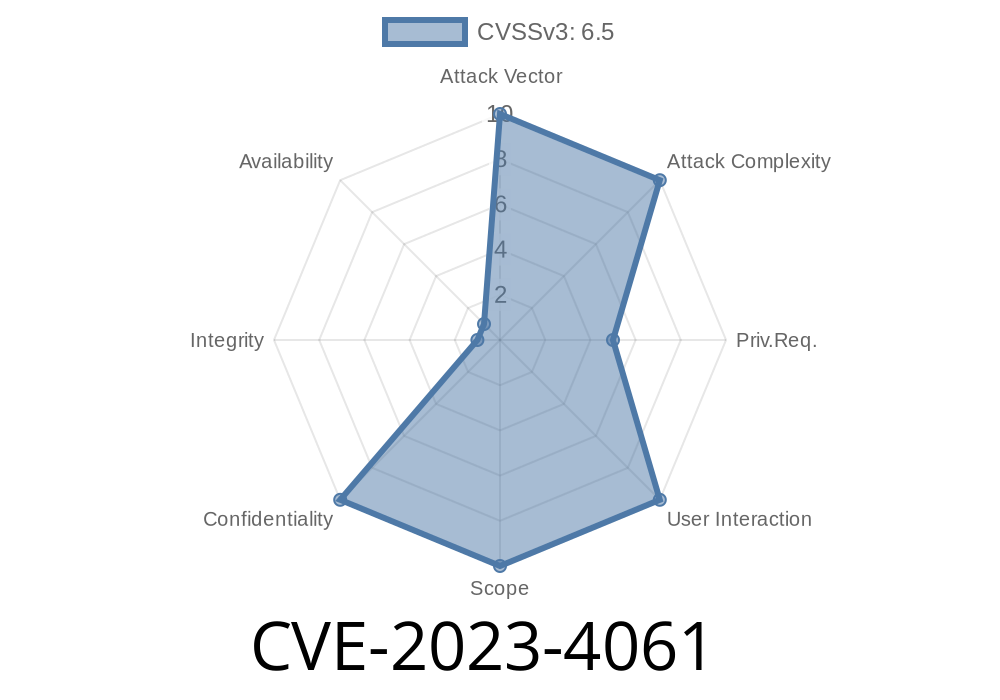In August 2023, a serious vulnerability (CVE-2023-4061) was disclosed in Wildfly-Core, an important management framework used in many enterprise Java applications. This vulnerability, if left unpatched, can let attackers extract potentially sensitive information from your Wildfly system—all through a simple misused management command. In this long read, we will break down what happened, why it matters, how attackers can abuse it, and how you can defend your systems.
What is Wildfly-Core?
Wildfly is a popular open-source Java application server formerly known as JBoss. The *core* component (wildfly-core) provides the server management layer, including the web console (called the *HAL Interface*) and the management API.
This system is often used to configure servers, deploy applications, and view logs—all highly sensitive tasks.
The Vulnerability So Far: How Does It Work?
CVE-2023-4061 is all about the misuse of the resolve-expression operation in the management interface.
Normally, Wildfly allows certain admin operations through its HAL web interface. However, it *should* restrict what certain operations can do—to make sure only authorized users can access sensitive internal data.
Due to this flaw, a management user (even a *less-privileged* one) could trick the system into resolving Java system properties or ENV variables—sometimes revealing secrets like database passwords, API keys, or system configurations.
Technical Deep Dive: Code Examples
In Wildfly management, you can send operations using JSON over HTTP to endpoints like /management. The resolve-expression operation lets you ask Wildfly to evaluate an *expression*—for example, "${env:HOME}"—and return its outcome.
Here's a cURL command abusing the flaw
curl -u user:password \
-H "Content-Type: application/json" \
-d '{
"operation": "resolve-expression",
"value": "${env:SECRET_ENV_VAR}"
}' \
http://wildfly-host:999/management
If SECRET_ENV_VAR exists on the system and contains, say, production credentials, Wildfly will resolve it and respond like so:
{
"outcome" : "success",
"result" : "super-secret-password"
}
There are many other things that an attacker can try to fish out (like JAVA_HOME, DATABASE_PASSWORD, or even custom environment variables), simply by guessing or enumerating common names.
Real Risk: Who Can Attack?
Any user with management interface access (even a read-only account) could leverage this flaw. Because many companies permit multiple admins and operators, not all users are equally trusted. One compromised account could mean all environment secrets are readable, regardless of your intended permissions model.
If an attacker can access the web (HAL) console with a low-privilege account, they too could submit these operations through the web interface and view results.
Attacker logs in: They access the Wildfly web console using limited management credentials.
2. Submit operation: Via direct API or Web interface, attacker submits a resolve-expression command with various guesses for sensitive property and env names.
3. Review output: HAL interface or HTTP API returns the *resolved* value—potentially a plaintext secret, password, config path, or even filesystem data.
4. Escalation: The attacker uses retrieved secrets to pivot into other parts of the application or infrastructure.
Why Is This Dangerous?
- Bypasses role-based access: Even low-privileged users can retrieve data reserved for higher privileges.
- Sensitive leaks possible: Any environment variable or server property—even unintentional—can be exposed.
- Widespread impact: Many organizations deploy Wildfly with default or lax management separation, multiplying the risk.
Patch & Mitigation
Red Hat has released an update that removes or restricts the resolve-expression operation for non-administrator users. You should upgrade to wildfly-core version 23..2.Final, 24..1.Final, or later.
References and Resources
- Red Hat Security Advisory
- Wildfly Issue Tracker WFLY-18219
- GitHub Commit Fixing the Vulnerability
Final Thoughts
Exploiting resolve-expression is almost *trivial* if you have management access. Even though the exposure is limited to users with some credentials, in real-world systems, those credentials are everywhere—from old scripts to misconfigured users. Sensitive info should never be this easy to leak.
If you run Wildfly or JBoss, patch immediately. Review your user permissions. And never underestimate the power of a simple but dangerous bug in your management interface.
Timeline
Published on: 11/08/2023 01:15:08 UTC
Last modified on: 11/16/2023 16:03:43 UTC
